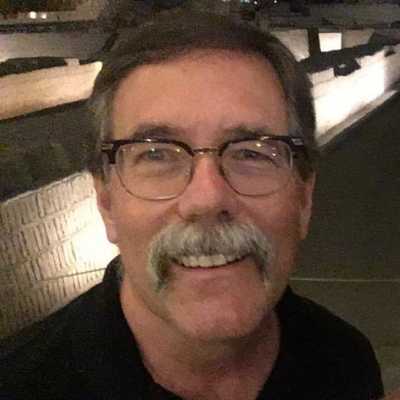Lutheran World Relief responds to immediate needs with distributions of cash to families in need, as well as water filtration units and solar lanterns
On September 20, 2017, Hurricane Maria pummeled Puerto Rico with devastating wind and rain. Weeks after the storm, most of the island's residents remain without power or running water, making each day a struggle.
Lutheran World Relief is working to provide assistance in the inland, mountainous community of Adjuntas, which has received little aid. LWR is providing cash vouchers to the neediest families, particularly those with young children and the vulnerable elderly, so they can meet their most immediate needs. LWR is also supplying refillable water filtration units so families no longer have to rely on drinking water from unpredictable bottled water distributions and unsafe sources like streams, as well as solar lanterns.
These are some of the stories of the people of Puerto Rico, who despite their hardships, forge ahead in a way they capture in a simple phrase: ¡Vamos Adelante!
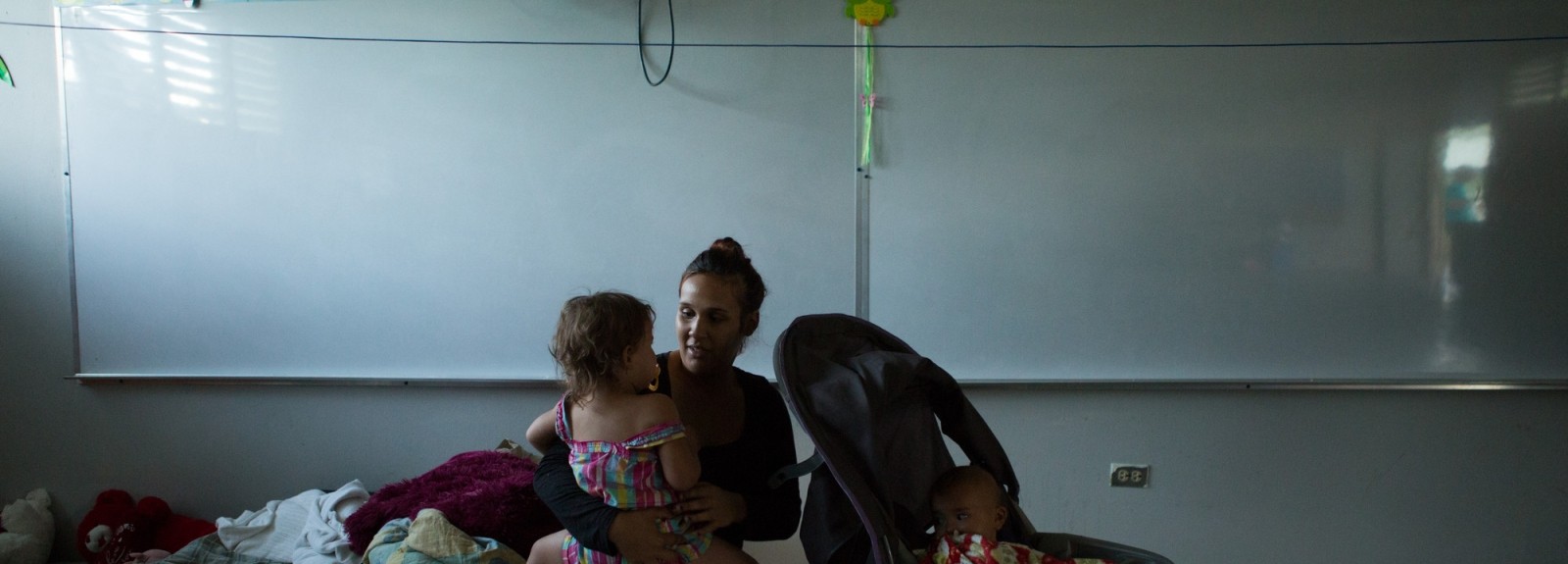
The Refuge
In normal times, Room B5 of Jose Emilio Lugo High School in Adjuntas, Puerto Rico is home to Señora Hernandez' 12th grade Spanish class.
But in the weeks after Hurricane Maria, it has been a refuge for Moises and Catherine Rivera, a young couple with two children and a third on the way. The high school is known locally as El Refugio, the refuge, and it is a temporary home for more than 70 people who since the storm have no other place to live.
The classroom desks have been pushed to one side and cots are grouped in a far corner of the room. Like much of the rest of Puerto, the school has no electricity or running water. It is a very dark and foreboding place when the sun goes down.
Moises, 19, says he's found an apartment in nearby Ponce. He could move them if he could come up with the $30 he needs to pay for utilities — which ironically wouldn't work at the moment, as nearly everyone is without power and running water.
We're just waiting," he says as he sits in the corridor outside the classroom where he and his family have lived since the day before Maria. "We're just going crazy.
A few doors down, Isabel Vecens Torres, 63, sits in her room passing the time by doing word searches from her granddaughter's activity book. She left her home so quickly after Puerto Rico's governor urged people to evacuate at once that she only brought the clothes she was wearing. She eventually brought one of the few items salvageable from her destroyed home: a bedspread that now covers her cot.
"I wasn't prepared at all," she says.
This isn't Isabel's first experience with disaster. Hurricane Georges in 1998 destroyed her home. She bought a new house, and just six months ago had finished renovations. Then Maria hit.
This is the second time this has happened to me," she says. "This has made me really depressed.
The high school serves as a refuge of last resort for people in the area around Adjuntas, a mountain community in central Puerto Rico, who have lost their homes in Hurricane Maria and have no place else to go. It's not a bad place. Meals are provided three times a day, and there are planned group activities, like art projects. Adults play dominoes in the shade, and raucous teenagers play spontaneous games of baseball with a tennis ball and a wooden 2 by 4 for a bat.
But it's clearly a way station whose residents can't wait to leave.
It tends to skew very young and very old, the most vulnerable members in the community, who for whatever reason can't stay with family. And there are issues beside homelessness to deal with. Many report they are experiencing anxiety and depression, both caused by recent events as well as pre-existing conditions.
For many of them, time is running out as the school will soon be needed for its original purpose once classes are scheduled to resume. And the next step simply isn't clear.
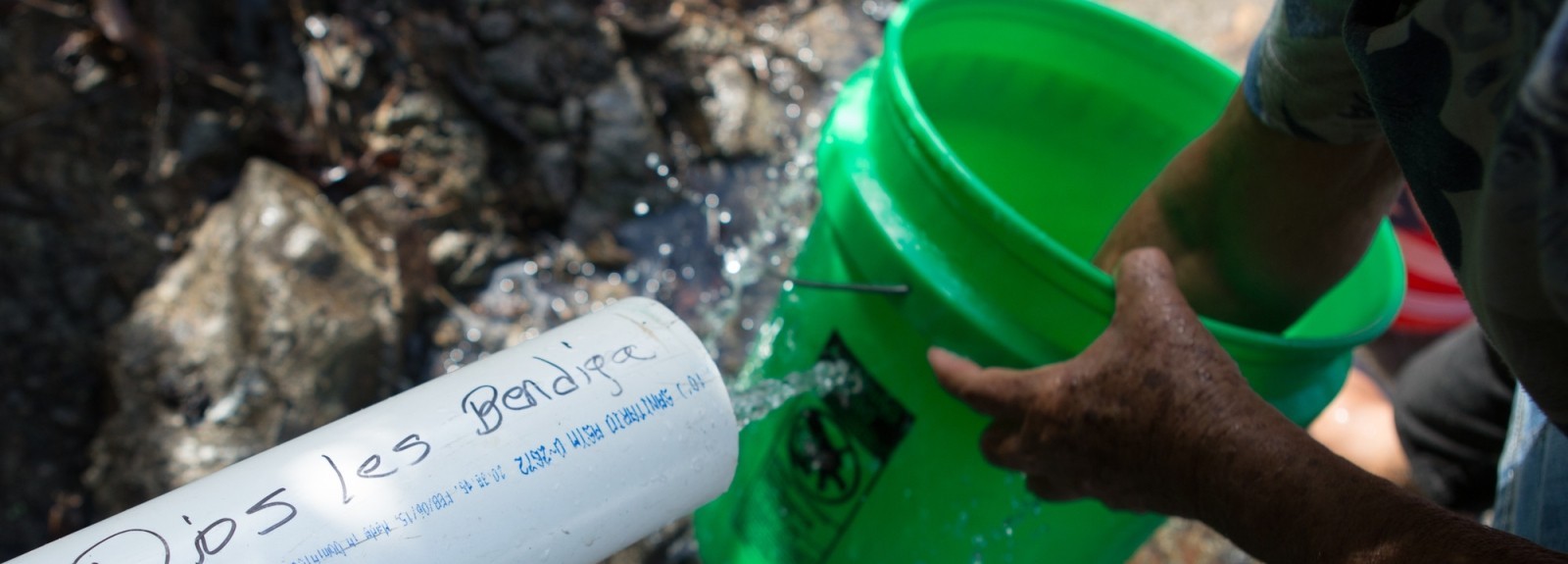
The daily search for water
Efrain Guzman, 60, and his daughter, Karryanne Guzman, 24, were carrying out their regular task on a recent weekday morning along the highway leading out of the town of Adjuntas, Puerto Rico.
They pulled their compact pickup over on the shoulder of the road where two PVC pipes stuck out of a rocky outcropping, water trickling out of them. The father and daughter began pulling out dozens of makeshift containers and began filling them with water, from empty water bottles to gallon jugs to larger industrial-sized containers.
All day long, a procession of families arrive at this site and others like it to fill up at the only source of water available to them since Hurricane Maria hit. The storm caused catastrophic damage to the island's water systems, and most Puerto Ricans don't have running water in their houses, and won't have it for the foreseeable future.
That means families scramble nearly every day to find sources of water to wash dishes clothes. There are occasional distributions of bottled water, but there are severe limits on how much each family can have, so it's never enough. Families are forced to find sources like the pipes on the side of the road.
The Guzmans say they have to return every day to provide enough water for cooking and washing for the 11 people, including five children, who live in their household.
The one thing they won't do is drink the water. They've been warned by health authorities that it's unsafe — although others are willing to take the risk. Virginia Santos, 62, is filling up containers at an adjacent pipe with her sister, Nereida Santos, 71. The sisters say they have no hesitation drinking the water they say comes from a mountain stream. "We had it tested," says Virginia. "It's OK to drink."
The water pipes have become a community service, albeit one that is unofficial and in many cases of dubious legal standing. Recognizing that tenuous statue, one user left a message for any would-be enforcer: "Please, do not remove. This is for everyone. God bless you!"
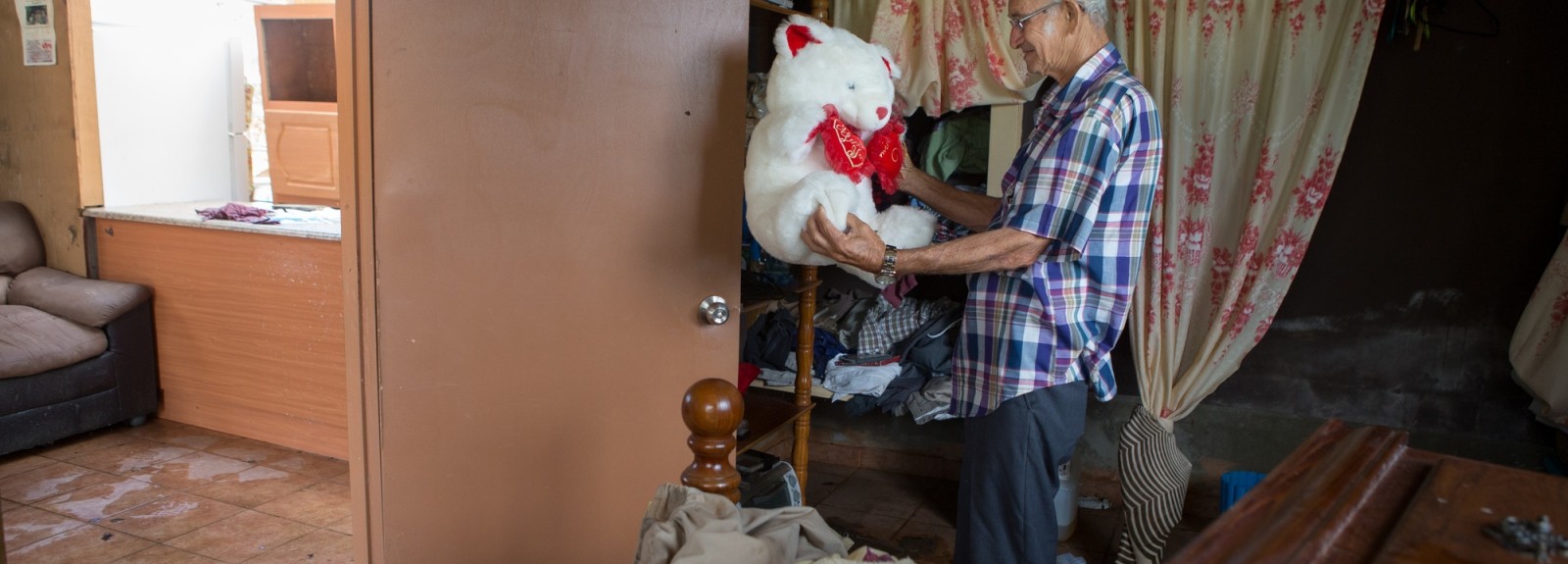
Memories in ruins
Jaime Lopez Luciano says he and his wife of 47 years, Gladys, built a wonderful life together, but had never been able to attain their dream of owning their own home.
When she fell ill with cancer and lay dying in the hospital, he was determined that she would not come home to their apartment, but to a dream home all their own. With help from the local mayor, he borrowed money for the land, and built the house himself, a quaint cottage with brown wood siding and yellow trim that sat at the end of a mountain road, with a panoramic view of the valley below.
When she left the hospital, he brought her to the newly finished house, where she lived her final days before dying 2 1/2 years ago. Jaime was left with the house and his memories.
But the exposed location on the mountainside that gave it such breathtaking views also left it vulnerable to a catastrophic storm like Maria. The category 5 hurricane roared up the valley from the sea and tore away the back half of Jaime and Gladys' home. He was away at the time, visiting his sister in Buffalo, N. Y. His children had to prepare him for what awaited his return.
"I was without words," he says, as he walks through the shell of the house, the floor littered with broken dishes, soggy pictures in cracked frames and a lifetime of mementos. "Here we had everything, the memories. Now, everything is gone."
As Lopez, 72, contemplates his memories, his grandson, Jose Luis Lopez Torres, 26, is anxious about the future. He is in his third year studying for a Masters in Social Work degree from a nearby university, and he is wrestling with whether he should stay and help rebuild his community, or leave for Tampa or Miami, where he has family and perhaps greater opportunity.
"I'm really struggling with this," he says, with emotion rising in his voice. "I'm really proud of my homeland. But we don't have the tools to fix this situation. There isn't a strategic plan for help arriving where it needs to. It's spotty and disorganized."
He says he worries most about people like his grandfather, who at least has family nearby he can turn to. "I'm young, I can take care of myself, he says. "But a lot of the older people are alone, especially in the rural areas. Their children didn't want to abandon them [when they left the island], but they didn't have a choice."
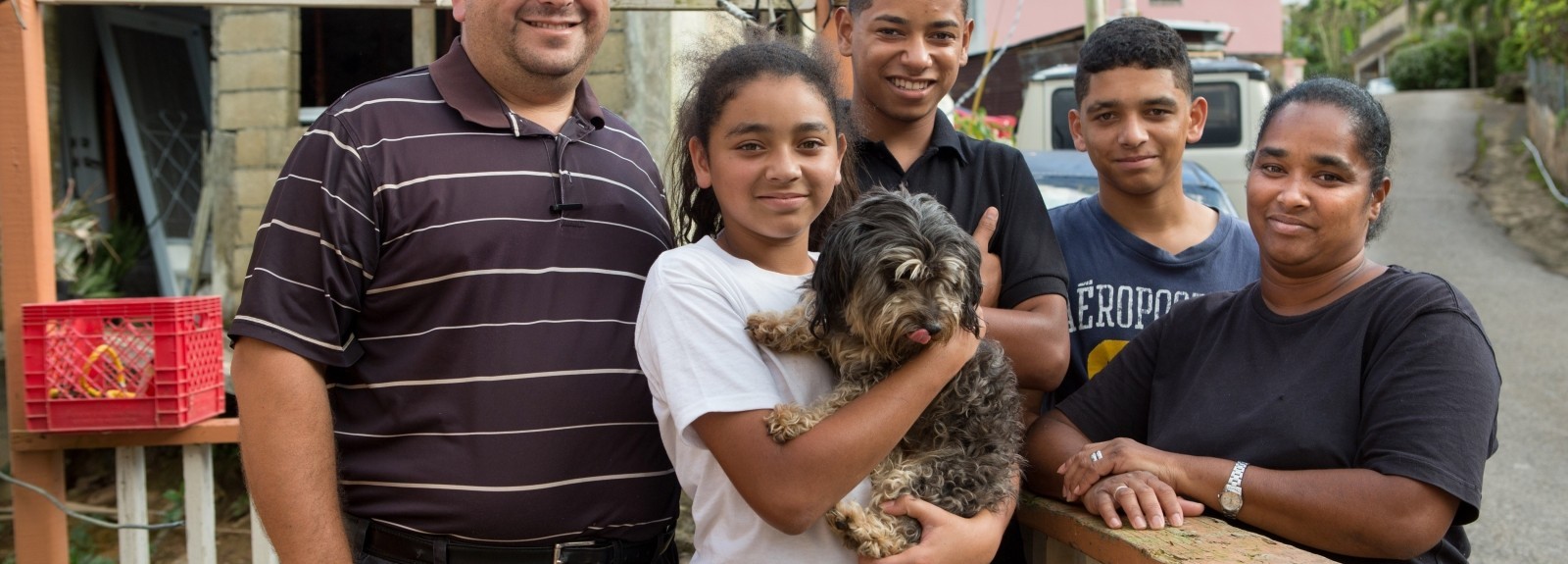
¡VAMOS ADELANTE!
For Jose A. Alvarez, the next year will bring back-breaking hard work and anguishing sacrifice.
The hard work he can handle. Every weekday, he drives a van filled with packaged coffee to sell to markets and restaurants across the region. Evenings and weekends will be taken up with continuing to build a concrete house that will better withstand storms like Hurricane Maria, which destroyed the rented wood-frame home where he lived with his family.
But on this sultry early evening, as he returned home from a day selling on the road, his daughter jumped into the arms of the father she clearly adores, he wears a forced smile that covers a growing sadness. The next day, his wife and three children would board a plane bound for Lorain, Ohio, a town about 30 miles west of Cleveland, where they live with his mother in law while he finishes building the family home. He's not sure how long they'll be gone.
"At least one year," he says. "And then we'll see."
It's best for them to go, he says. There is no electricity or running water in the neighborhood, and the schools in his community still haven't opened. He worries that his children will fall behind.
Asked if she's excited to be moving to Ohio, his 11-year-old daughter, Stephanie, slowly shakes her head. She'll start a new school there with the challenge of speaking no English.
But her father believes they will be able to overcome any and all hurdles. He says many people will look at a newly painted wall and focus on the one spot the painter missed. But Puerto Ricans instead look at the beauty and satisfaction of a task completed.
That, he says, is how he'd prefer to look at his life. "Vamos adelante," he says wearily, a phrase that translates to: “We’ll forge ahead.”

They are my angels
In the aftermath of Hurricane Maria, Luzneida Jimenez was sick with worry. She had no idea whether her 16-year-old son Christian, who lives with her ex-husband, was safe.
She was unable to contact him in the post-storm chaos, and because she had to evacuate to a shelter, he had no idea where she was. Social workers she contacted wouldn’t help her.
She was at the end of her rope when she met a couple at the high school where she sought shelter: William Maldonado, 61, and his wife, Felicita Feliciano, 59.
William and Felicita are a very recognizable couple at the refuge. William is never far from his guitar. He plays it and sings traditional Puerto Rican songs whenever he gets anxious or depressed, and it calms him. And there is much reason to feel anxious, from the lack of privacy from living communally in classrooms to worries about how to deal with storm damage.
William and Felicita, seeing Luzneida’s distress, asked what they could do to help. They had a car and offered to drive to the ex-husband's house to see if Luzneida’s son was there.
It just so happened that William had been acquainted with Luzneida’s former spouse. As they neared the house, they saw Christian’s father walking in the road. Once he heard about Luzneida’s worry, he took his son for a surprise visit to see his mother.
“They said ‘You have a visitor,’” she says. “I was crying. I couldn’t even stand.”
“He said, ‘I’m here, mom. I’m OK. I’m OK.’”
Luzneida, 39, and her husband, Francisco Plaza, 55, face many challenges ahead. Their house will require extensive repair before they can move back. She needs daily therapy for chronic asthma on a machine that requires electricity, which they still don’t have in their neighborhood.
But she prefers to focus on what she considers a miracle: the help she received from her new friends, William and Felicita: "They are my angels," she says.












